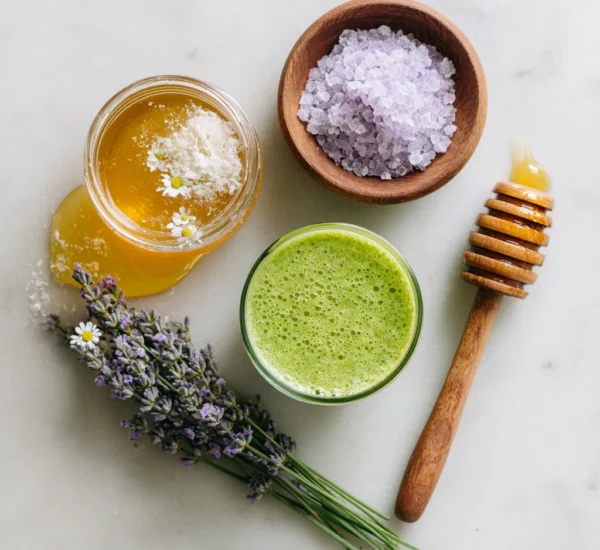Gentle Activities to Help You Unwind After Work
The workday is done, but your mind is still racing. Emails, deadlines, and meetings can leave you feeling stressed and drained. Transitioning from work mode to relaxation mode is crucial for your well-being. Instead of collapsing on the couch with your phone, try incorporating gentle activities into your routine to unwind and recharge. This article explores ten effective and enjoyable ways to de-stress after a long day.
Section 1: The Importance of Unwinding After Work
Why is it so important to actively unwind after work? The benefits extend beyond simply feeling more relaxed. Chronic stress can lead to a cascade of negative health outcomes, including increased risk of heart disease, high blood pressure, and weakened immune system. Mentally, prolonged stress can contribute to anxiety, depression, and burnout.
The Physical Benefits:
- Lower Blood Pressure: Relaxation techniques help lower blood pressure by reducing the production of stress hormones like cortisol and adrenaline.
- Improved Sleep Quality: Unwinding before bed sets the stage for a more restful night's sleep. Gentle activities calm the nervous system and reduce racing thoughts.
- Reduced Muscle Tension: Stress often manifests as muscle tension, particularly in the neck, shoulders, and back. Relaxation techniques can help release this tension.
- Enhanced Immune Function: Chronic stress weakens the immune system. By reducing stress, you can bolster your body's defenses against illness.
The Mental Benefits:
- Reduced Anxiety and Depression: Unwinding allows you to detach from work-related worries and focus on the present moment, reducing anxiety and depressive symptoms.
- Improved Mood: Gentle activities stimulate the release of endorphins, natural mood boosters that leave you feeling happier and more content.
- Increased Focus and Concentration: A relaxed mind is a more focused mind. Unwinding after work allows you to return to tasks with renewed clarity and concentration.
- Prevention of Burnout: Consistently taking time to unwind helps prevent burnout by providing opportunities for rest, rejuvenation, and self-care.
Incorporating even a few of these gentle activities into your daily routine can make a significant difference in your overall well-being, both physically and mentally.
Section 2: Mindful Activities for Stress Relief
Mindful activities center around paying attention to the present moment without judgment. They encourage you to become aware of your thoughts, feelings, and sensations without getting carried away by them. This practice can be incredibly effective in reducing stress and promoting a sense of calm.
1. Meditation:
Meditation is a powerful tool for quieting the mind and reducing stress. Even a few minutes of daily meditation can have a significant impact. There are many different types of meditation, so experiment to find one that resonates with you. Guided meditations, readily available through apps and online resources, are an excellent starting point. Focus on your breath, a mantra, or a specific image to anchor yourself in the present moment. Don’t worry about clearing your mind completely; simply acknowledge your thoughts and gently redirect your attention back to your chosen focus.
2. Deep Breathing Exercises:
Deep breathing exercises are a simple yet effective way to calm your nervous system and reduce stress. Try the 4-7-8 technique: inhale deeply through your nose for a count of 4, hold your breath for a count of 7, and exhale slowly through your mouth for a count of 8. Repeat this several times, focusing on the sensation of your breath. Deep breathing helps activate the parasympathetic nervous system, which is responsible for the “rest and digest” response.
3. Yoga and Stretching:
Yoga and stretching combine physical movement with mindfulness, promoting both physical and mental relaxation. Gentle yoga poses can release muscle tension, improve flexibility, and calm the mind. Focus on your breath as you move through each pose, paying attention to the sensations in your body. Even a short stretching routine can help you unwind after a long day.
4. Journaling:
Journaling provides an outlet for processing your thoughts and feelings. Writing down your experiences, both positive and negative, can help you gain clarity and perspective. Don’t worry about grammar or structure; simply write whatever comes to mind. Journaling can also be a great way to track your progress in managing stress and improving your overall well-being.
Section 3: Creative Outlets for Unwinding
Engaging in creative activities can be a wonderful way to unwind and express yourself. These activities offer a welcome distraction from work-related stress and allow you to tap into your inner creativity.
5. Listening to Music:
Music has a powerful effect on our emotions. Listening to calming music can help lower your heart rate, reduce stress hormones, and promote relaxation. Create a playlist of your favorite relaxing songs or explore new genres that you find soothing. Classical music, ambient music, and nature sounds are often good choices.
6. Reading a Book:
Escape into a good book and leave your worries behind. Reading can transport you to another world and provide a much-needed break from the stresses of daily life. Choose a genre that you enjoy, whether it’s fiction, non-fiction, or poetry. The key is to find something that captivates your attention and allows you to unwind.
7. Painting or Drawing:
Express your creativity through painting or drawing. You don’t need to be an artist to enjoy these activities. Simply experiment with different colors, textures, and techniques. The act of creating something can be incredibly therapeutic and relaxing.
8. Gardening:
Gardening is a wonderful way to connect with nature and unwind after a long day. The simple act of planting, watering, and tending to plants can be incredibly calming and grounding. Gardening also provides a sense of accomplishment and satisfaction.
Section 4: Sensory Experiences for Relaxation
Engaging your senses in pleasant and calming ways can be a highly effective way to unwind. These activities help you to focus on the present moment and create a sense of peace and tranquility.
9. Taking a Warm Bath or Shower:
A warm bath or shower can be incredibly soothing and relaxing. Add Epsom salts, essential oils, or bath bombs to enhance the experience. The warmth of the water helps to relax your muscles and calm your nervous system.
10. Spending Time in Nature:
Spending time in nature has been shown to have numerous benefits for both physical and mental health. Take a walk in the park, sit by a river, or simply spend some time in your backyard. Nature provides a sense of peace and tranquility that can help you unwind and recharge.
Creating a Relaxing Environment:
- Dim the Lights: Soft lighting creates a more calming and relaxing atmosphere.
- Light a Candle: Scented candles can create a pleasant and soothing ambiance. Lavender, chamomile, and sandalwood are popular choices for relaxation.
- Play Calming Sounds: Nature sounds, ambient music, or white noise can help to block out distractions and create a more peaceful environment.
- Declutter Your Space: A cluttered environment can contribute to stress. Take some time to declutter your space and create a more organized and relaxing environment.
Section 5: Integrating Unwinding Activities into Your Routine
The key to successfully unwinding after work is to make it a consistent part of your routine. Here are some tips for integrating these activities into your daily life:
- Schedule It In: Treat your unwinding time as you would any other important appointment. Schedule it into your calendar and make it a priority.
- Start Small: You don't have to spend hours unwinding to reap the benefits. Even a few minutes of deep breathing or meditation can make a difference.
- Be Consistent: Consistency is key. Aim to incorporate unwinding activities into your routine every day, even if it's just for a short period of time.
- Be Flexible: Life happens. There will be days when you can't stick to your routine. Don't beat yourself up about it. Just get back on track the next day.
- Listen to Your Body: Pay attention to your body's signals. If you're feeling stressed or overwhelmed, take a break and engage in a relaxing activity.
- Don't Multitask: When you're unwinding, focus on the activity at hand. Avoid multitasking or trying to do other things at the same time. This will help you to fully relax and recharge.
- Turn Off Notifications: Minimize distractions by turning off notifications on your phone and computer. This will allow you to fully focus on the activity at hand.
- Create a Ritual: Establishing a pre-unwinding ritual can help signal to your brain that it's time to relax. This could involve changing into comfortable clothes, making a cup of tea, or lighting a candle.
- Involve Others: Consider inviting a friend or family member to join you in your unwinding activities. This can make it more enjoyable and help you stay accountable.
By incorporating these strategies into your daily life, you can successfully integrate unwinding activities into your routine and reap the numerous benefits of reduced stress, improved mood, and enhanced well-being. Remember, taking care of yourself is not selfish; it’s essential for your overall health and happiness.
FAQ: Unwinding After Work
Q: How long should I unwind after work?
A: There’s no magic number. Even 15-30 minutes can make a difference. The key is consistency. Find an amount of time that works for you and stick to it as much as possible.
Q: What if I don't have time to unwind after work?
A: Even small pockets of time can be used effectively. Try a few minutes of deep breathing exercises, a short walk, or listening to a calming song. The key is to find ways to incorporate relaxation into your routine, even when you’re short on time.
Q: What if I can't quiet my mind?
A: It’s normal to have racing thoughts. Don’t get discouraged. Acknowledge the thoughts and gently redirect your attention back to your chosen focus. With practice, you’ll find it easier to quiet your mind.
Q: What if I don't enjoy any of these activities?
A: Experiment with different activities until you find something that you enjoy. The key is to find something that you find relaxing and enjoyable. Don’t be afraid to try new things.
Q: How do I stay consistent with my unwinding routine?
A: Schedule it in, start small, be consistent, be flexible, listen to your body, and involve others. By following these tips, you can successfully integrate unwinding activities into your daily life.



